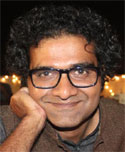
By Arshad Alam, New Age Islam
25 April 2016
Trupti Desai and the movement that she has inaugurated is an important moment in the history of Indian women’s movement. At times, it might appear what real empowerment of women can come through forcing open the doors of temple for women. Isn’t it the case that all religions of the world are patriarchal and hence in demanding access to the sanctum sanctorum of the temple, aren’t these women wasting their agency in the reproduction of patriarchy? Wouldn’t it be better if they concentrated their energies on more fundamental issues like violence and inadequate representation of women in the public sphere?
These arguments do not hold for two very simple reasons. First, it should be left for the initiators of change to decide what constitutes an important and valuable arena of transformative action for them. Second, and more fundamentally, religion may be just other-worldly orientation but its effects are felt deeply in this world.
Since religion is embedded into the social structure, any change within the arrangement of power of this institution (religion), is likely to lead to changes in other material spheres as well. Religion is often masked as something which belongs to the symbolic realm. Even this symbolism masks relations of oppression between those who have power and those who do not. It is not a surprise therefore that women and low castes, both are ranked at the bottom of the hierarchy not just symbolically but also materially.
A struggle against the representation encoded within religion is therefore fundamentally a struggle against the asymmetries of power within the larger society. And that’s the reason why women like Trupti must be regarded as vanguards who have not just challenged the status quo but have also been partially successful at democratising gender space.
All her attempts till now were aimed at reforming Hindu society. But then gender oppression is present across all major religions in varying forms. It should therefore not come as a surprise that now, along with some reformists Muslims, she is part of the demand to throw open the inner sanctum of shrines for Muslim women.
It remains to be seen what impact this is going to have and what kind of debate this move will generate. However, the fact the now there is a common platform for Muslim and Hindu who have vowed to fight together to end gender discrimination is most welcome. This is also going to be a test for the practice of secularism in the country. While most progressives end up supporting Hindu reform, the same set of people have problems coming out in support of Muslim women due to number of reasons, the foremost reason among them being the position of Muslims in India who are a disadvantaged minority at many levels. In terms of education, employment and representation, Muslims lag behind all religious minorities in this country. Moreover, time and again their backwardness gets related to their religion.
Thus many people think twice before raising any issue related to the Muslims in India. For them, it is like victimizing the victim further by putting the burden of reform on their shoulders. Thus one of the oft repeated suggestions that come from this quarter is that the voice of social reform should come from within the Muslim community itself. The problem with this kind of an understanding is that the structure of politics within the Muslim community is such that it inhibits any kind of reformist voice coming from within the community. The so called progressives within the community are thus a very miniscule number of people without any constituency. In no terms can they be called as a representative voice within the community.
This then raises a further question which is not just complex but also loaded in this political context: in an atmosphere where demands are being raised for a uniform civil code by sections of the government which makes Muslims nervous and in a societal complex where progressive voices within the community are few and far in between, should the state intervene in the affairs of the Muslim community with the express intention of aligning it towards democratic and progressive interpretation of the their personal laws?
If the state could intervene in the personal laws of Hindus, then what stops it from interfering in the personal laws of Muslim community? The issue therefore is not legal but more of a political nature. In the scenario in which there are not enough progressive voices within the Muslim community, what is more important is that the state should pay heed to the minority within Muslims which is demanding reforms in their religious practices and which they argue is discriminatory towards women. However, what should be made amply clear that the lead in this effort should be taken by Muslim women themselves. It is very good that women like Trupti Desai are willing to lend their shoulders to Muslim women, but it should not happen that she should be viewed as fighting for the rights of Muslim women. After, throwing open Muslim religious spaces like shrines and mosques for women is a Muslim religious issue and it will be befitting if Muslim women are the ones who take charge of this struggle.
A newageislam.com columnist, Arshad Alam is a Delhi based writer

No comments:
Post a Comment